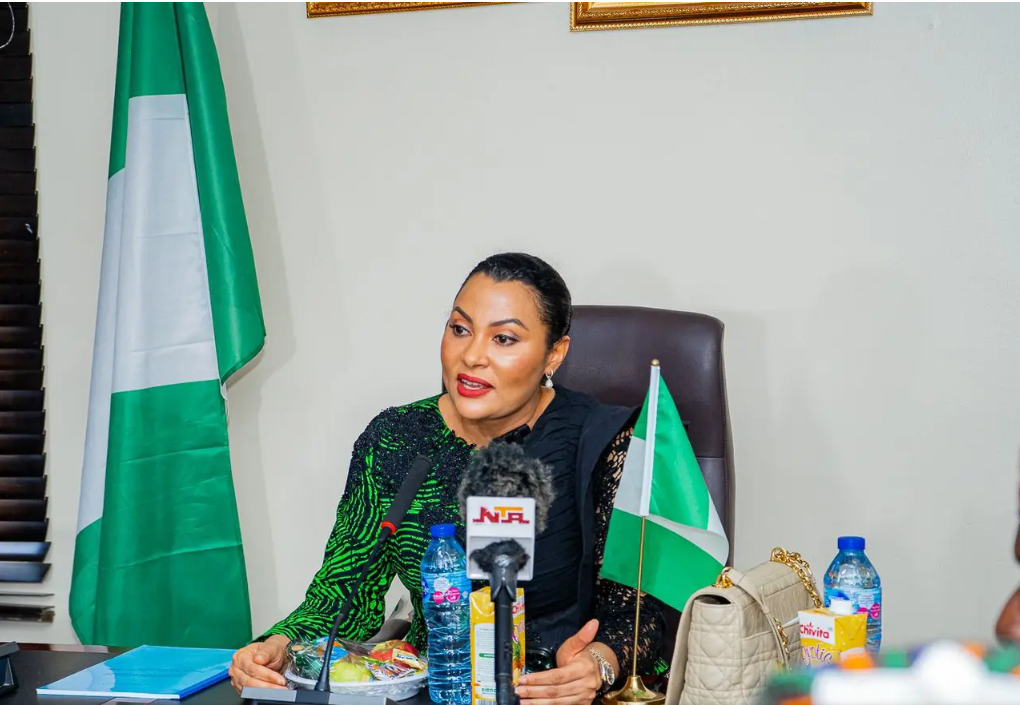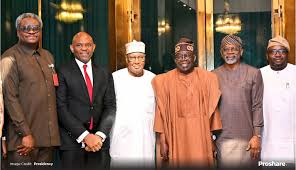Let’s be honest—when most Nigerians think of where our money goes, we usually blame the usual suspects: corrupt politicians, inflated budgets, or maybe that cousin who collected cooperative funds and vanished into thin air. But what if we told you there’s an even bigger drain—one so silent and sneaky that even EFCC might need GPS to track it?
According to the Federal Government, Nigeria is losing a staggering $18 billion every single year—not to fraudsters in cyber cafés, but to profit shifting and tax avoidance by multinational corporations doing business right here on our soil.
Yes, $18 billion—that’s over ₦27 trillion gone with the wind, thanks to what experts call illicit financial flows (IFFs). In simpler terms, that’s money that should be staying here, paying for roads, hospitals, schools, electricity (yes, that too), but instead is quietly being funneled out to foreign bank accounts and tax havens. Like money dey do japa.
The Minister of State for Finance, Dr Doris Uzoka-Anite, didn’t mince words at the National Conference on Illicit Financial Flows in Abuja. She called it what it is—a “hidden pipe draining the nation’s wealth.”
And it’s not a small leak either. It’s more like someone left the tap on in Abuja, Lagos, and Port Harcourt—all at once.
“Illicit financial flows are not just technical problems,” the minister warned. “They are political, developmental, and national security problems. A monster that must be eradicated.”
So What’s Really Going On?
Many multinational companies operating in Nigeria—think oil, tech, telecoms, and manufacturing giants—often engage in profit shifting. That means they move their earnings around on paper, showing losses or small profits in Nigeria, while reporting big profits in countries with little or no tax.
It’s like someone running a booming suya business in Abuja but telling the taxman he only sold toothpicks.
This trick allows them to avoid paying their fair share of taxes here. And with fewer taxes collected, the government struggles to fund essential services. No wonder our roads still have potholes big enough to host swimming competitions.
Dr Uzoka-Anite stressed that this loss is choking development and stripping Nigeria of resources it needs to finance everything from schools to security. She said the Tinubu administration’s Renewed Hope Agenda is shifting focus from oil dependence to non-oil revenue, like tax—and that means tightening the loopholes.
The Federal Inland Revenue Service (FIRS) is now stepping up its game. Its Executive Chairman, Zacch Adedeji, says the country is entering a “new era of fiscal reform.” And it’s not just about passing laws—it’s about enforcement, transparency, and trust.
“Our goal is to create a culture where people pay taxes out of trust, not fear,” Adedeji said. “We are building a tax system that is proactive, smart, and secure.”
The government has already signed off on four tax reform bills, part of a larger effort to clean up the tax system, seal revenue leaks, and hold corporations accountable.
Experts say curbing illicit financial flows will require:
-
Stronger international cooperation
-
Transparent tax rules
-
Digital compliance tools
-
Serious political will
And maybe, just maybe, fewer sweetheart deals with foreign companies that treat Nigeria like a cash cow.
Let’s face it, $18 billion is not pocket change. It’s money that could fix the power grid, equip hospitals, and even provide proper data for JAMB (because some students are still waiting for results, abeg).
Until we plug these hidden pipes, Nigeria will keep working hard, only to watch the money fly out the back door—quietly, cleverly, and legally questionable.
Because at the end of the day, na we dey lose. And the “monster” Dr Uzoka-Anite spoke of? It’s not under the bed. It’s in the spreadsheets.
#ThisIsAfrica | #TaxJustice | #IllicitFunds | #NigeriaEconomicLeak





